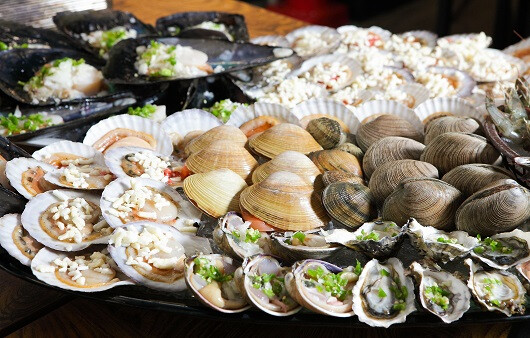
Busan, South Korea – Paralytic shellfish poisoning (PSP), a harmful algal bloom that can contaminate shellfish and cause serious illness in humans, has been detected earlier than usual in Busan. According to the National Fisheries Research and Development Institute (NFRDI), a sample of mussels collected from the Saha district of Busan on January 13th tested positive for PSP levels exceeding safe limits.
PSP occurs when filter-feeding shellfish, such as mussels, clams, and oysters, ingest toxic algae. 1 The resulting toxins can accumulate in the shellfish and, if consumed by humans, can cause symptoms including numbness, tingling, difficulty swallowing, and in severe cases, paralysis and respiratory failure.
Typically, PSP outbreaks in South Korea occur in the spring and early summer when water temperatures rise. However, in recent years, the frequency and severity of these outbreaks have increased, with PSP appearing earlier in the year due to climate change. The NFRDI attributes this trend to rising sea temperatures, which provide ideal conditions for the growth of harmful algae.
"Global warming has led to a significant increase in sea temperatures, particularly along the Korean coast," said a researcher at the NFRDI. "These warmer waters create a favorable environment for the proliferation of harmful algae, causing PSP to occur earlier in the year."
To monitor and manage PSP outbreaks, the NFRDI conducts regular surveys of coastal waters. While only one sampling site in Busan tested positive for PSP in the latest survey, authorities are concerned that the problem may spread to other areas.
"We are closely monitoring the situation and will increase the frequency of our surveys, especially in areas where PSP has been detected," said the researcher. "Consumers are advised to only purchase shellfish from reputable sources and to follow any advisories issued by local health authorities."
The South Korean government has implemented several measures to address the issue of harmful algal blooms, including strengthening monitoring systems, developing early warning systems, and promoting sustainable aquaculture practices. However, as climate change continues to impact marine ecosystems, the frequency and severity of PSP outbreaks are expected to increase in the future.
[Copyright (c) Global Economic Times. All Rights Reserved.]





























